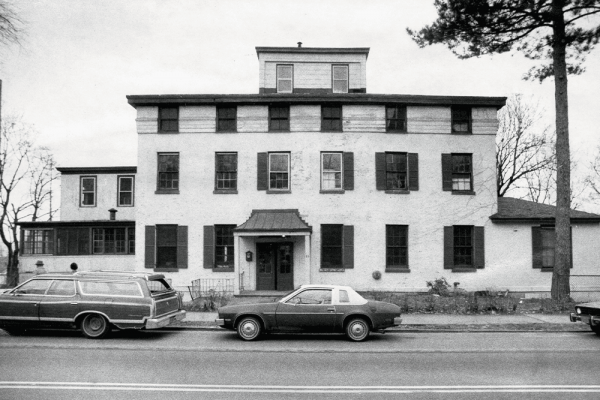The Episcopal Church’s executive council voted to form a committee to investigate the church’s involvement with forced adoptions that occurred between the 1940s and ’70s.
At a recent meeting on Oct. 27, the church continued its momentum toward accountability for forced adoptions. During the general convention last summer, the Episcopal Church passed a resolution acknowledging that maternity homes operated or supported by the church coerced pregnant, unwed women and girls to relinquish their children. The recent vote directs a committee to gather archives of church and diocese involvement in forced adoption, provide opportunities for women and their now-adult children to share their stories, and explore reconciliation opportunities. This authorizes a committee to operate through 2027. The news was first reported by Episcopal News Service’s reporting on the council.
“This is critical, important, sacred, deserving work. It needs to be done,” said Rev. Anne Hodges-Copple, a member of the executive council, in a public meeting last week.
Francine Gurtler, the mother who initiated the resolution, stayed at St. Faith’s Home for Unwed Mothers within the New York diocese until she relinquished her son in 1971. Gurtler reached out to bishops and clergy members to sponsor the resolution, eventually partnering with Mark Diebel, a retired priest and adoptee, who sponsored the resolution. In her research, Gurtler found at least seven maternity homes connected to Episcopal dioceses across the U.S.
The goal will be for the committee to represent the diversity of those affected by adoption. The committee will be comprised of bishops, clergy, and lay members, according to the resolution. The church would appoint staff liaisons from the archive office and from appropriate ministry offices.
Hodges-Copple noted the resolution is not within the normal process for the denomination and worried that might affect the work. She said the preparation for the church’s general convention in nine months could impede the formation of such a committee. During the meeting to discuss the resolution Sarah Stonesifer Boylan, the chair of the committee who brought the resolution forward, said, “Some of these people are probably not those who are typically involved in committee structures because of their specific affiliation with forced adoption,” thus should not be busy with other church work. Stonesifer Boylan added that it will be a benefit for the committee’s work to convene through at least the current and next general conventions.
Yet Hodges-Copple noted that the length of time to complete the committee’s work is not yet clear, since the scope is unknown. The resolution, which was approved by the full executive council after subcommittee recommendations, approximates spending of $30,000, lower than the $40,000 originally proposed in the 2022 resolution.
“I am confident that this important work can be funded,” said Rev. Michael Barlowe, secretary of the executive council. The estimate is “based on the current understanding of the number of folks who might be appointed as well as a potential need for consultants.”
Gurtler wants to see an apology from the denomination. She suggests that reconciliation work could include mental health services for women who relinquished children at maternity homes and work to make records accessible for families to be reunited. In the past, the Episcopal Church has supported adoptee rights to information about their biological heritages — passing resolutions in 1982 and again in 2009 for dioceses and parishes to advocate for state legislatures to open adoption records to adoptees upon reaching legal age.
Editor’s note: This article was update on Nov. 6 to correct that Hodges-Copple said the resolution was not within the normal process for the denomination, not for the diocese.
Got something to say about what you're reading? We value your feedback!







